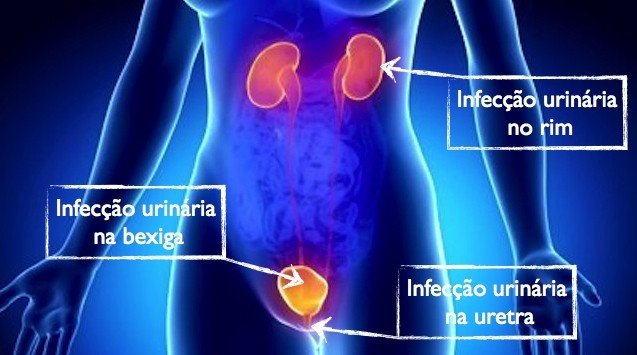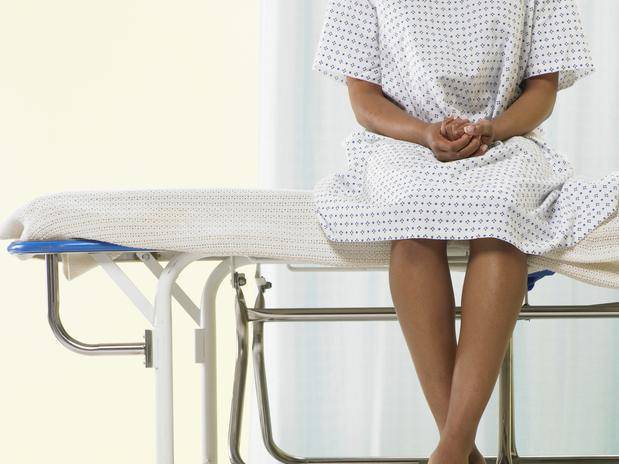For those who don’t know, Urinary Infection or Urinary Tract Infection, or UTI, is the most common infection in humans, second only to the flu, which is caused by viruses and not bacteria, and there are still many doubts about it, which can happen in any part of the urinary tract, having different names depending on the part of the urinary tract infected and being accompanied by some very uncomfortable symptoms. If the infection affects the bladder, then it is called cystitis, if it affects the kidneys, it is called pyelonephritis. It is worth knowing, however, that the problem is generally caused mainly by germs coming from the intestine, so in 85% of cases it is caused by an intestinal bacteria called Escherichia coli.
Also Read: Vulvitis and Vulvovaginitis: see how they happen and how to prevent them

A curiosity is that around 20% of urinary infection cases are in men and 80% affect women, and this is because the body’s main reservoir of bacteria is the intestine, therefore, since the anus is very close to the vagina, this This region can end up colonized with bacteria that end up in the urinary system, while the distance between the anus and the urethral canal in the penis is much greater, meaning the risk of urinary infection in men is much lower.
Read too: Endometriosis: Know how to recognize and treat
See what causes Urinary Infection
Urinary tract infections are caused by germs, generally bacteria, that enter through the urethra and reach the bladder. This can lead to an infection, most commonly in the bladder itself, which can spread to the kidneys. It is necessary to be aware of cases in the family, as hereditary factors increase the possibilities, in addition to low resistance and diseases such as AIDS, diabetes and cancer, which are also aggravating factors, in addition, other factors are also associated with urinary infections, such as use of spermicides, multiple partners, urinary stones, high urinary residue and use of urinary catheters.
Read too: The Truth No One Ever Told You About HPV
Symptoms of Urinary Infection
At first, when the infection only affects the bladder, the symptoms are burning when urinating, increased frequency of going to the bathroom to urinate and the need to urinate frequently, even right after emptying the bladder, low-grade fever (although not everyone has a fever) , are typical symptoms of cystitis, that is, a urinary infection that only affects the bladder and not the kidneys. Now, when cystitis turns into pyelonephritis, that is, an infection in the kidney, the symptoms are stronger and the condition is more serious and potentially serious, with fever, vomiting, chills, tremors or night sweats, back pain and general condition is very compromised.
Read too: Polycystic Ovary Syndrome affects 10% of women
Treatment of urinary tract infection

If the bladder infection is mild, oral antibiotics are recommended (3 days for women and 7 to 14 days for men) because there is a risk that the infection will spread to the kidneys. If it is a bladder infection with complications such as pregnancy or diabetes, or a mild kidney infection, antibiotics for 7 to 14 days are recommended.
Read too: Infographic to understand the three phases of the menstrual cycle
It is important to complete the antibiotic treatment, even if you feel better, because if you do not take the antibiotics until the end, the infection may return and be more difficult to treat.
People with a bladder or kidney infection should drink plenty of fluids.
Read too: Unmissable tips to alleviate PMS symptoms
Some women have recurrent or repetitive bladder infections, in which case the doctor may suggest different ways to treat them, for example, taking a single dose of an antibiotic after sexual contact can prevent these infections, which occur after sexual activity. , as in some cases you may be prescribed antibiotics for 3 days of treatment to use against infections diagnosed based on your symptoms, or even try to take a single daily dose of antibiotics to prevent infections.
(ninja-inline id=9469)
It is worth mentioning that hospitalization is only a case when the patient, with a more serious kidney infection, is very ill and is unable to take oral medications or drink enough fluids, or if he is elderly, has kidney stones or changes in the anatomy of his urinary tract, are pregnant, have cancer, diabetes, multiple sclerosis, spinal cord injury or other medical problems.
Read too: 5 therapies to help you stop smoking
Expectations
A urinary tract infection is uncomfortable, but treatment is generally successful; symptoms of a bladder infection disappear within 24 to 48 hours after starting treatment. If you have a kidney infection, it may take a week or more for your symptoms to go away.
Read too: 6 Techniques to combat anxiety
Possible complications
The risk of life-threatening blood infection (sepsis) is greatest for children, very old adults and those whose bodies cannot fight off infections (for example, due to HIV or chemotherapy for cancer).
Read too: Cameron Diaz launches book with health and fitness tips
How to prevent urinary tract infections

Although some factors contribute to the emergence of urinary infections, it is possible to prevent the problem with some measures, such as drinking lots of water, so that the urine comes out clearly, urinating after sexual intercourse, not holding urine for a long time and if If this is a recurring problem, see a urologist to investigate other factors that may be related to recurrent urinary tract infections.
Read too: 9 Essential precautions for a peaceful and healthy pregnancy
It is worth mentioning that even though sexual transmission is less frequent, it is necessary to remember that every time there is a bacteria in one of the partners, it can be transmitted sexually. If someone has a urinary tract infection with a germ called chlamydia, for example, it can compromise the urinary and sexual tract.
(ninja-inline id=9469)
Of course, maintaining preserved immunity is always very important, and this can be achieved with good nutrition, good sleep and less stress. Those who always have an infection after sex are recommended to take a low-dose antibiotic tablet after sex, not to mention that it is worth remembering that it is essential to have good hygiene so that bacteria do not come into contact with the urethra and never have sexual intercourse. anal without a condom.
Read too: Basic Personal Hygiene
A tip for women after menopause is to use an estrogen ointment in the vaginal area to reduce the likelihood of new infections.
Recommendations:

– Opt for external pads rather than internal pads, some doctors believe this increases the likelihood of infections, and of course, change your pad every time you go to the bathroom.
-Wear cotton panties and change them at least once a day.
– Do not use showers or sprays or powders for feminine hygiene and try not to use any product that contains perfumes in the genital area.
– Choose a shower rather than a bathtub and avoid bath oils.
– ALWAYS keep the genital area clean and clean the genital and anal area before and after sexual activity.
– Urinate before and after sexual activity.
– Never wipe yourself from back to front after using the bathroom, as this may bring bacteria to your genital area.
Finally, a simple urinary infection, such as cystitis, when not treated properly or at the right time, can turn into pyelonephritis, which can generate a generalized infection, known as sepsis, not to mention that it can lead to the formation of abscesses in the kidney.

Sign up for our newsletter and stay up to date with exclusive news
that can transform your routine!
Warning: Undefined array key "title" in /home/storelat/public_html/wp-content/plugins/link-whisper-premium/templates/frontend/related-posts.php on line 12
Warning: Undefined array key "title_tag" in /home/storelat/public_html/wp-content/plugins/link-whisper-premium/templates/frontend/related-posts.php on line 13



